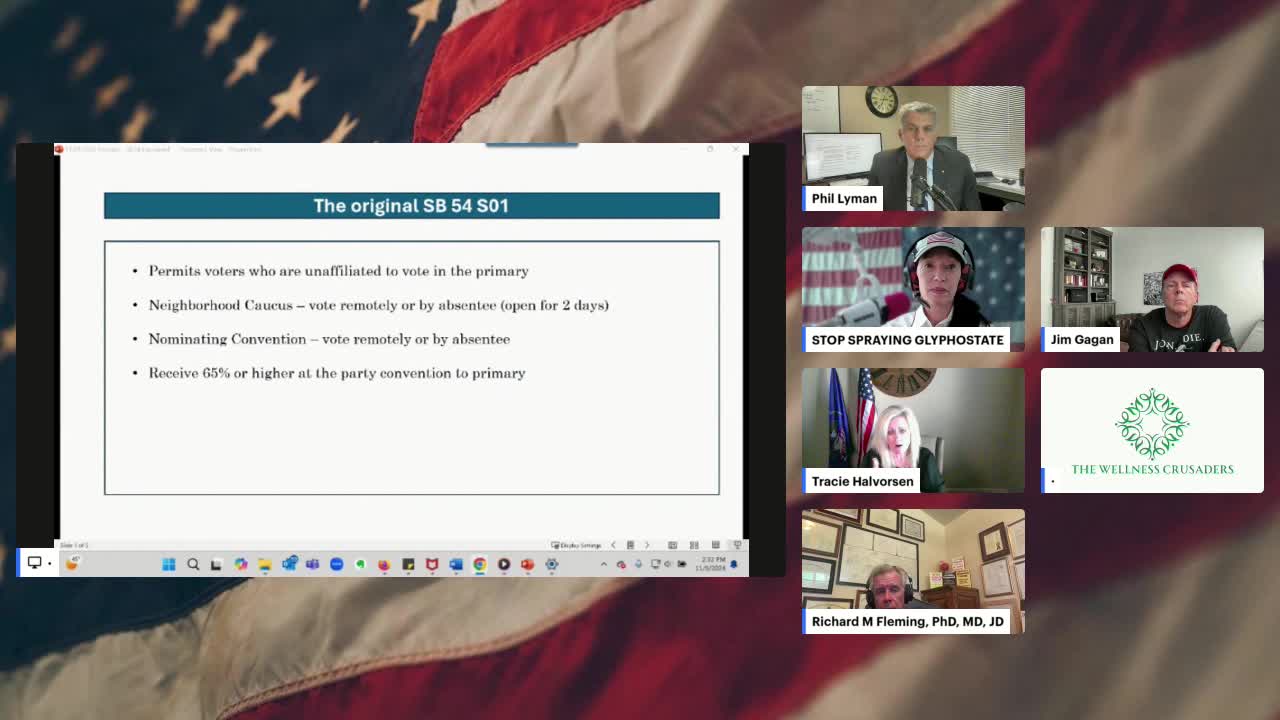Controversial changes spark debate over primary voting rules
November 09, 2024 | Utah Podcasters, Utah Lobbyist / NGO, Utah Legislative Branch, Utah
This article was created by AI summarizing key points discussed. AI makes mistakes, so for full details and context, please refer to the video of the full meeting. Please report any errors so we can fix them. Report an error »

In a recent government meeting, discussions centered around proposed changes to the voting process, particularly concerning unaffiliated voters and party caucus systems. One of the primary proposals aimed to allow unaffiliated voters to participate in primary elections, alongside suggestions to extend neighborhood caucuses to a two-day format. Additionally, there was a push for remote and absentee voting options for delegates unable to attend nominating conventions.
However, these proposals faced significant pushback from party officials. The party firmly rejected the idea of a two-day caucus system, citing logistical challenges. Despite this, some elements of absentee voting have been implemented in certain counties, indicating a shift in the party's stance on voter accessibility.
The meeting also highlighted a legal precedent from 2015 involving Spencer Cox, which deemed certain \"jungle primaries\" unconstitutional. This ruling has implications for the current discussions, as it underscores the complexities surrounding party nominations and the legal framework governing them.
Ultimately, the meeting concluded with a revised approach to the nomination process, mandating that party conventions cannot occur before April 1st and requiring a signature process for nominations. These changes reflect ongoing tensions between party regulations and efforts to enhance voter participation.
However, these proposals faced significant pushback from party officials. The party firmly rejected the idea of a two-day caucus system, citing logistical challenges. Despite this, some elements of absentee voting have been implemented in certain counties, indicating a shift in the party's stance on voter accessibility.
The meeting also highlighted a legal precedent from 2015 involving Spencer Cox, which deemed certain \"jungle primaries\" unconstitutional. This ruling has implications for the current discussions, as it underscores the complexities surrounding party nominations and the legal framework governing them.
Ultimately, the meeting concluded with a revised approach to the nomination process, mandating that party conventions cannot occur before April 1st and requiring a signature process for nominations. These changes reflect ongoing tensions between party regulations and efforts to enhance voter participation.
View the Full Meeting & All Its Details
This article offers just a summary. Unlock complete video, transcripts, and insights as a Founder Member.
✓
Watch full, unedited meeting videos
✓
Search every word spoken in unlimited transcripts
✓
AI summaries & real-time alerts (all government levels)
✓
Permanent access to expanding government content
30-day money-back guarantee


